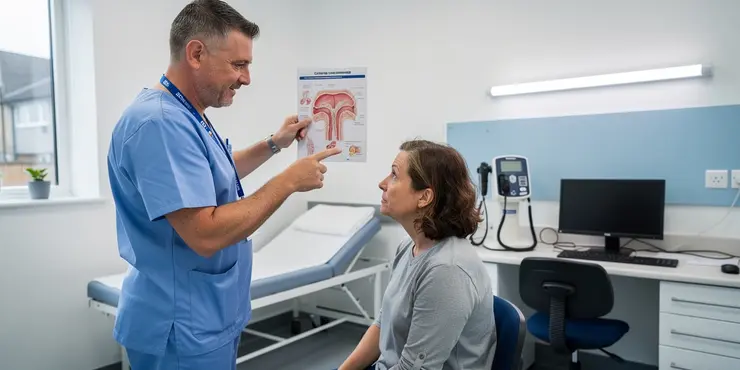
Find Help
More Items From Ergsy search
-
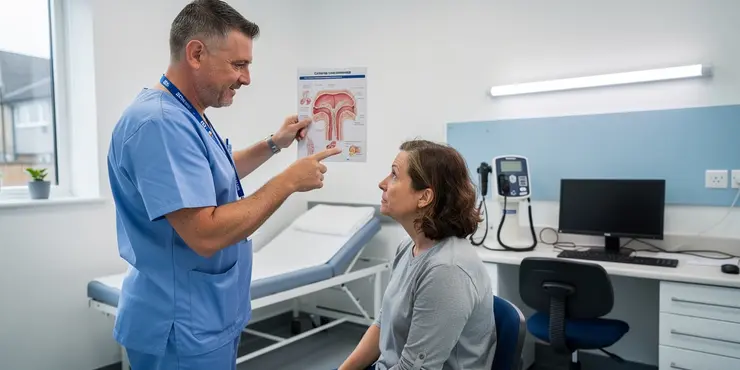
What are Cold Sores?
Relevance: 100%
-
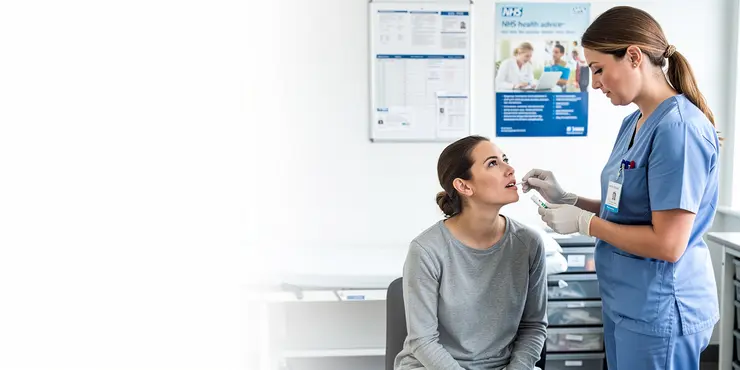
Is there a cure for cold sores?
Relevance: 100%
-

Are cold sores contagious?
Relevance: 99%
-
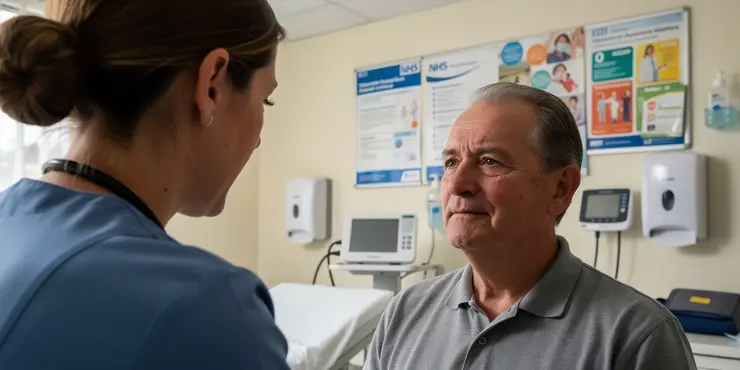
What causes cold sores?
Relevance: 96%
-
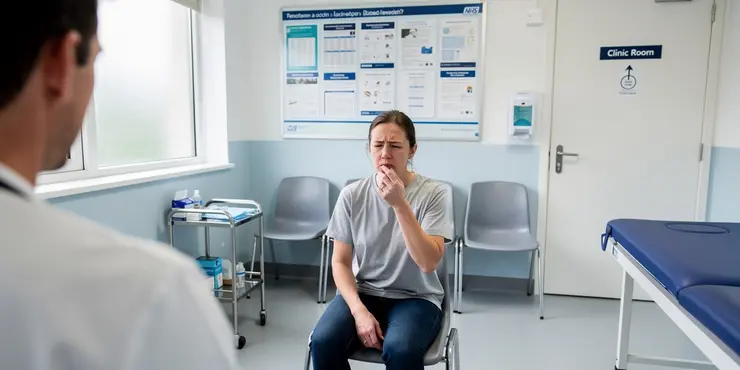
What are the symptoms of a cold sore?
Relevance: 96%
-
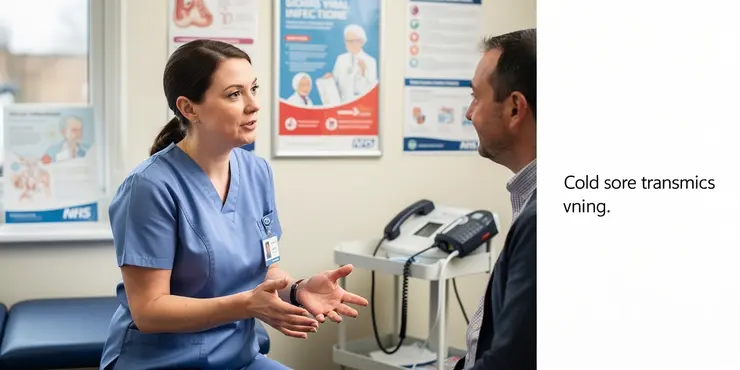
How are cold sores transmitted?
Relevance: 95%
-
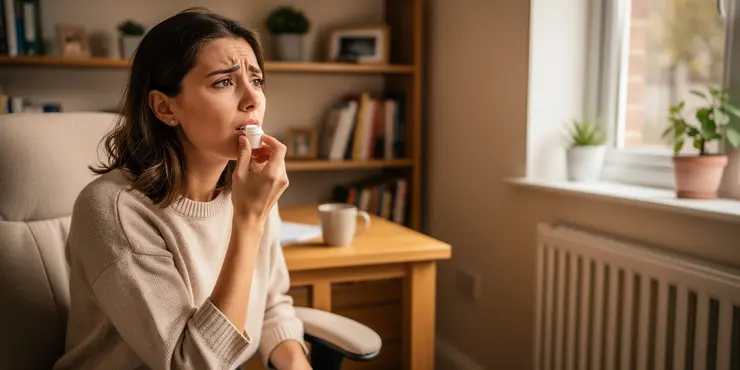
How long do cold sores last?
Relevance: 92%
-
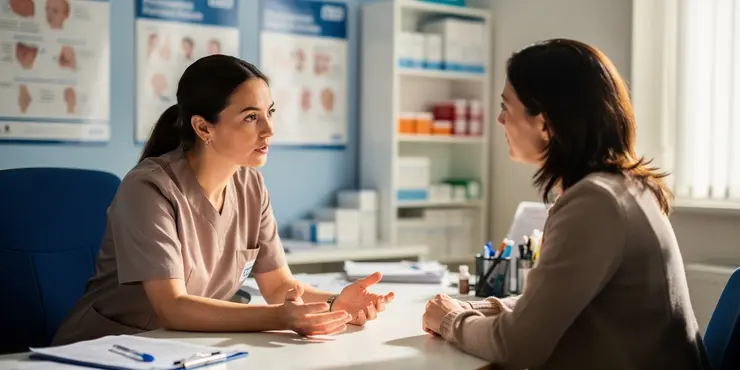
What triggers a cold sore outbreak?
Relevance: 91%
-
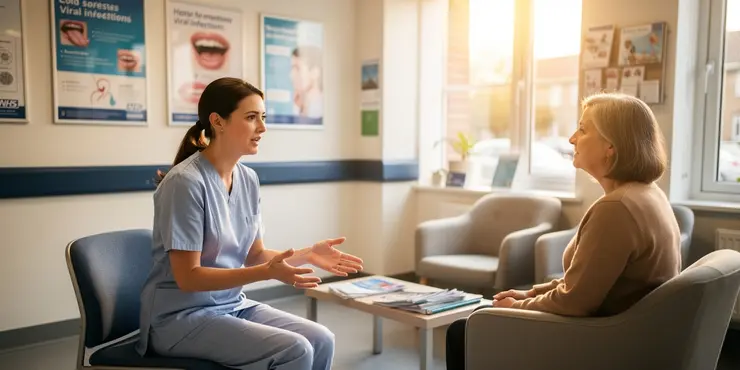
How can I prevent cold sores?
Relevance: 90%
-
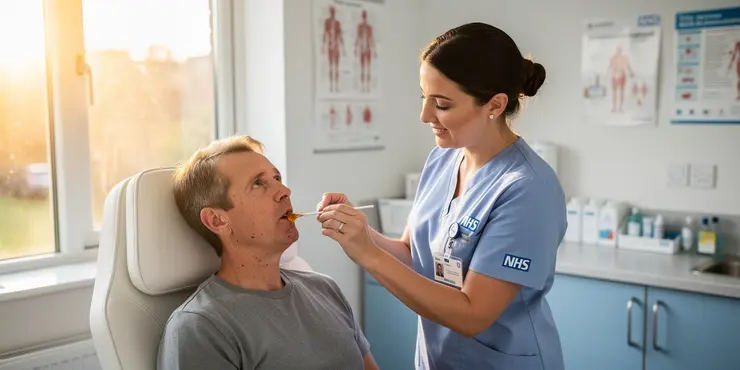
Honey 'as good as antiviral creams' for cold sores | NHS Behind the Headlines
Relevance: 79%
-
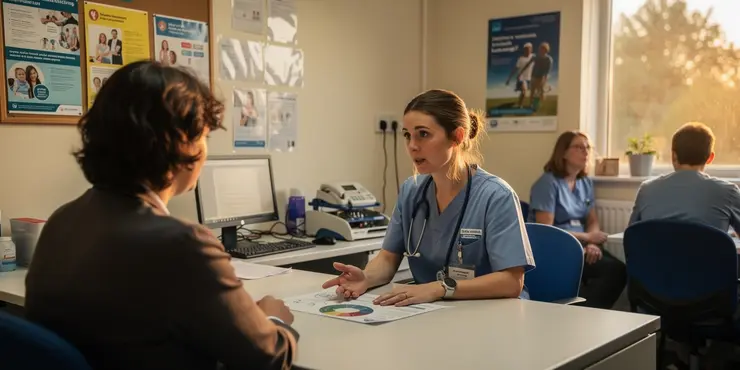
What is the best way to treat a sore throat from a cold?
Relevance: 77%
-
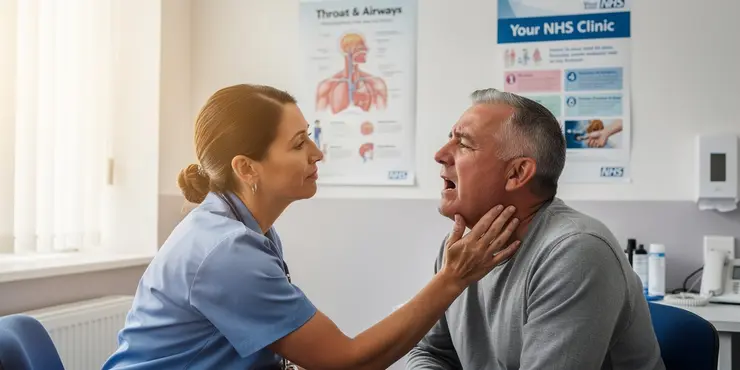
Causes of a sore throat
Relevance: 66%
-
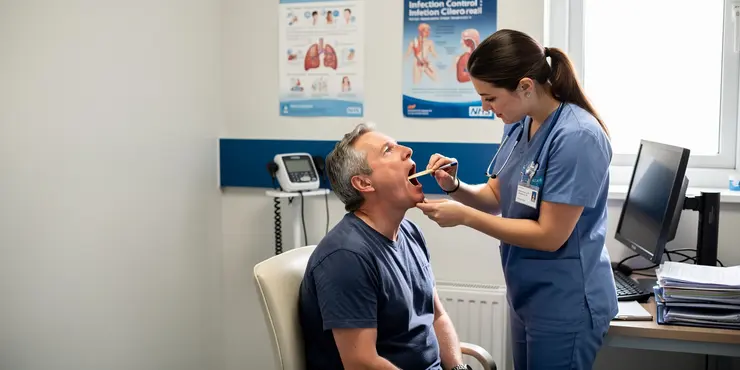
Treating a sore throat
Relevance: 65%
-
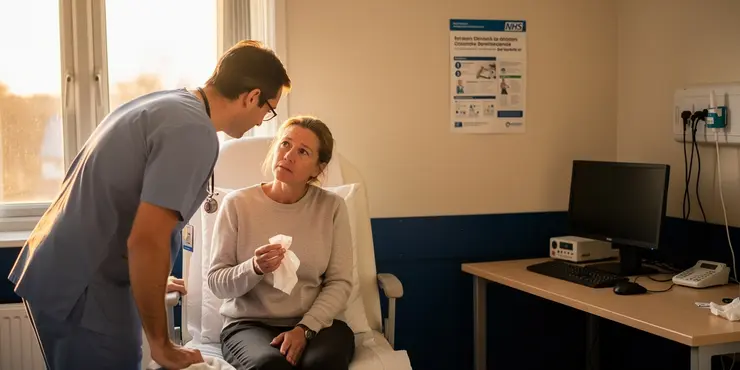
What are the common symptoms of a cold?
Relevance: 59%
-
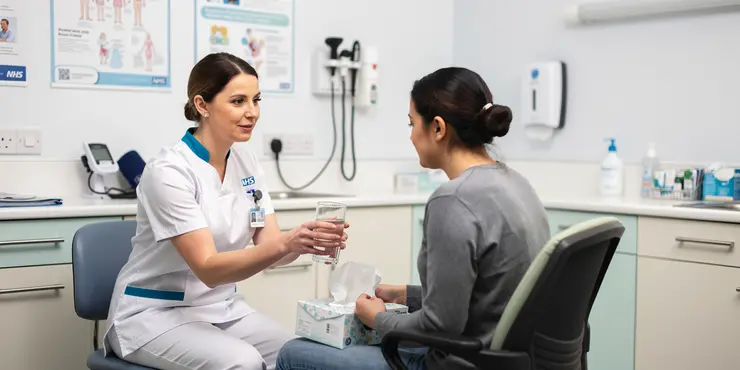
How to treat a cold | NHS
Relevance: 58%
-

Sore throat: what should I do?
Relevance: 58%
-
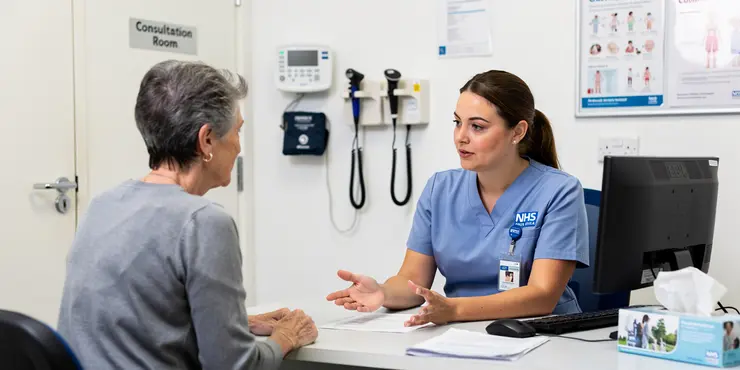
How to Treat a Common Cold
Relevance: 57%
-
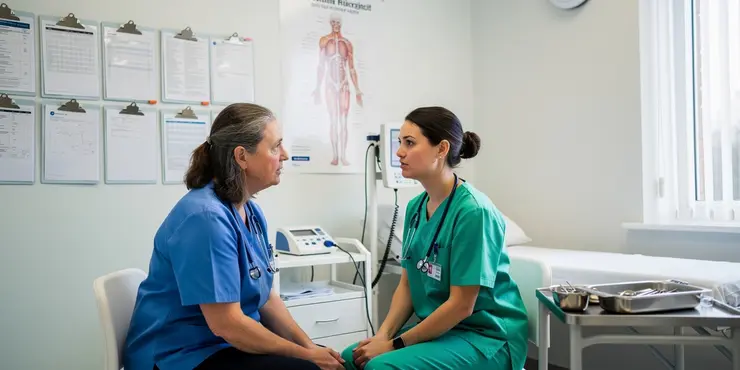
Is there a way to cure a cold quickly?
Relevance: 54%
-
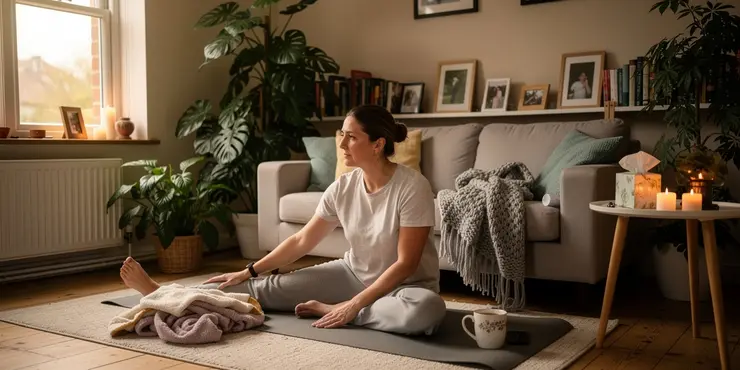
Is it safe to exercise with a cold?
Relevance: 54%
-
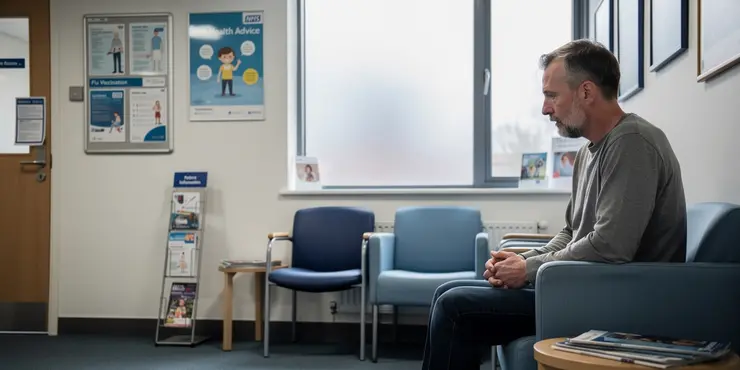
Should I see a doctor for a cold?
Relevance: 53%
-

How can I treat a cold at home?
Relevance: 53%
-
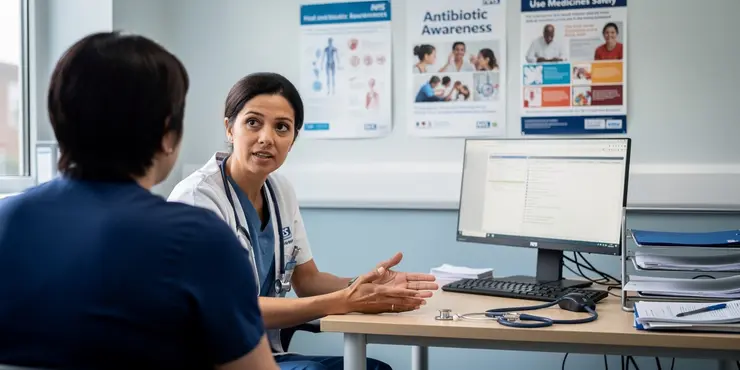
Can I take antibiotics for a cold?
Relevance: 52%
-
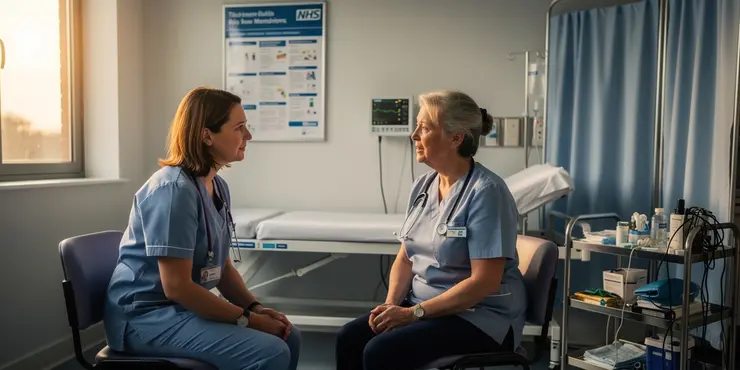
Can cold weather cause a cold?
Relevance: 51%
-

How long does a common cold typically last?
Relevance: 50%
-
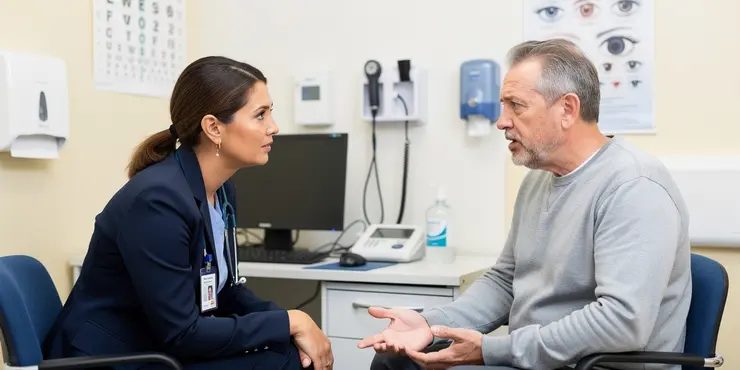
Can I use a humidifier to help with my cold symptoms?
Relevance: 48%
-
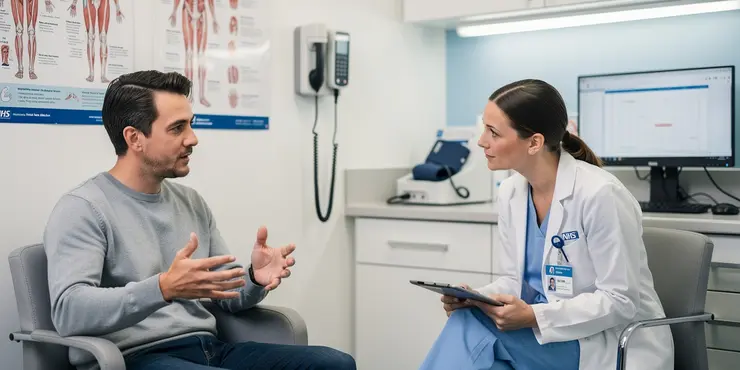
What should you do if you have a cough or cold?
Relevance: 45%
-
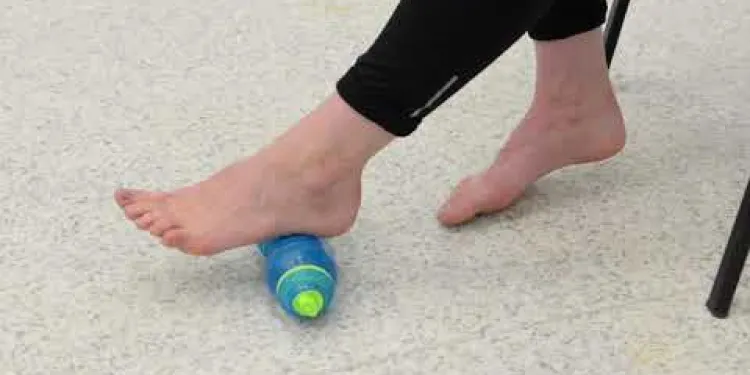
Plantar Fascia Cold Therapy
Relevance: 45%
-
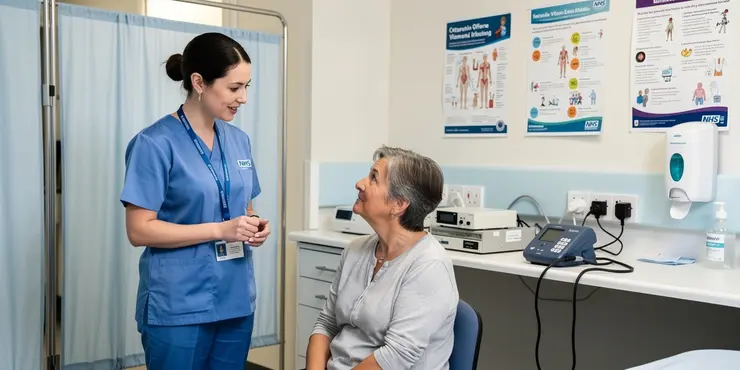
Is Vitamin C effective against colds?
Relevance: 43%
-
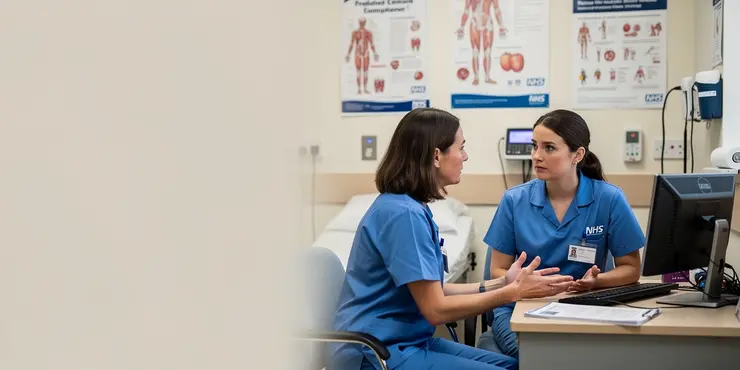
Is it safe to take cold showers during a heatwave?
Relevance: 42%
-
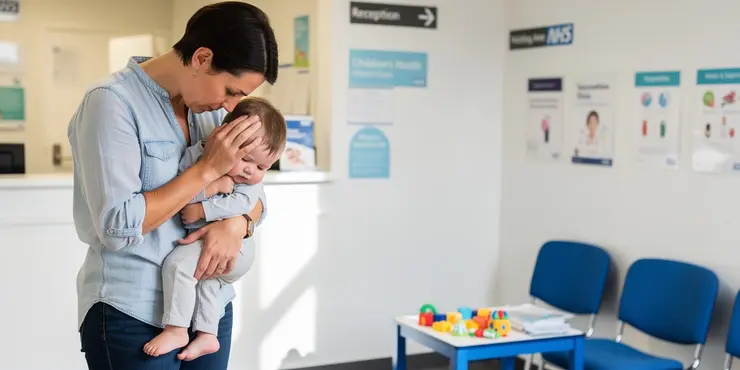
How do I treat my child's cold? (9 - 30 months) | NHS
Relevance: 41%
-
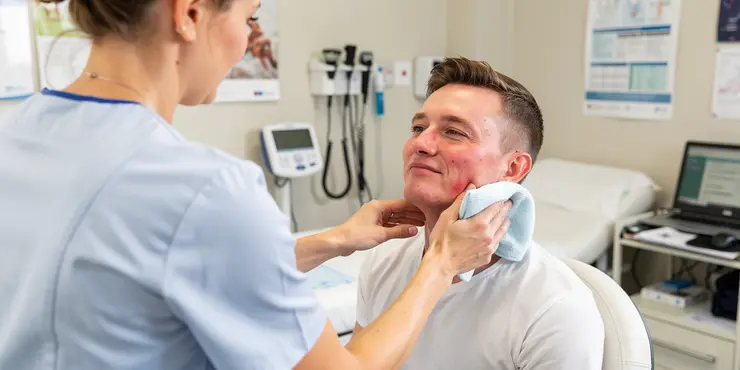
Is it okay to use ice packs or cold showers to cool down?
Relevance: 41%
-
Can orange juice help prevent colds?
Relevance: 41%
-
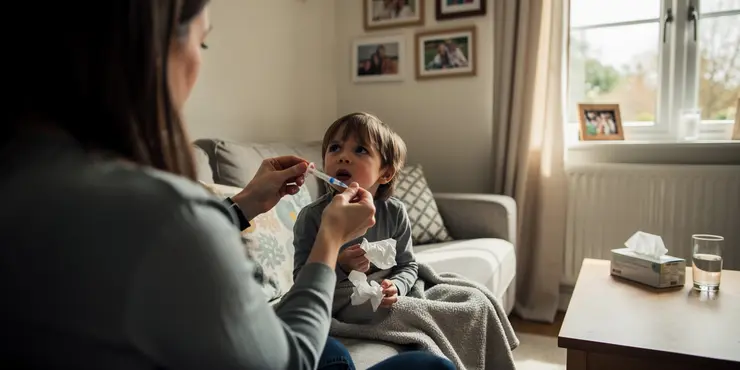
Can children take the same cold medications as adults?
Relevance: 39%
-
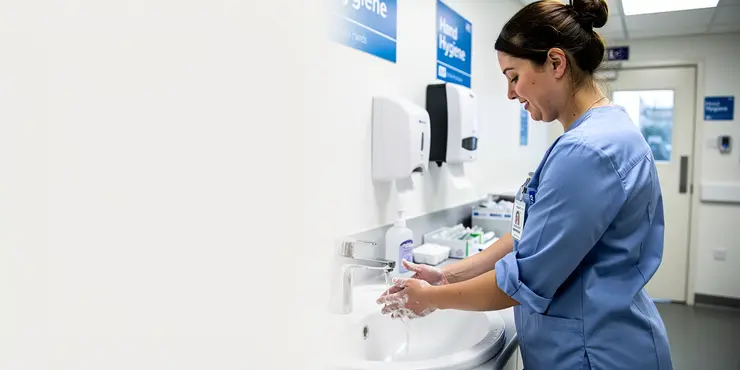
How can I prevent spreading my cold to others?
Relevance: 38%
-
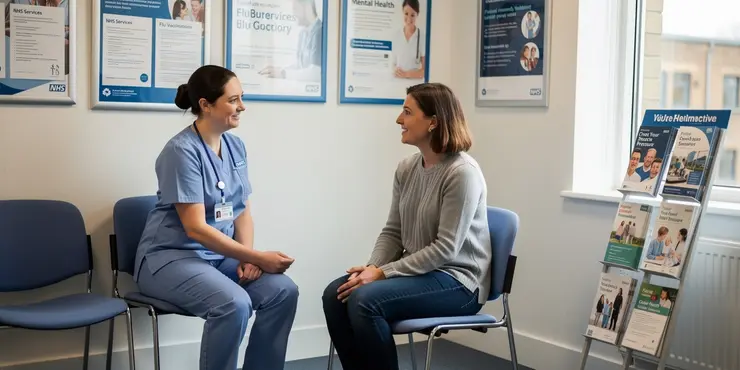
Can I receive the Warm Home Discount and Cold Weather Payment?
Relevance: 38%
-
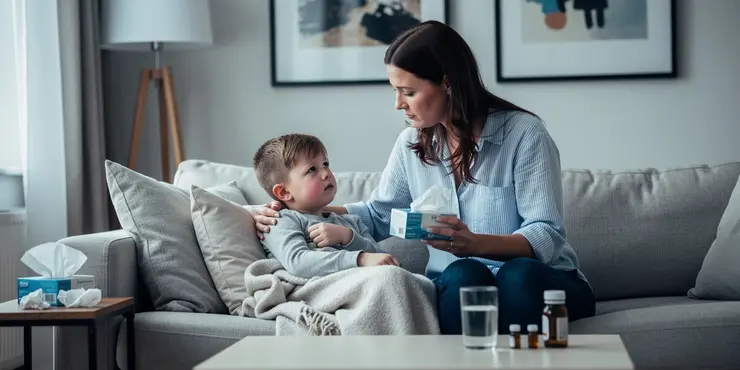
Dealing with Common Childhood Illnesses
Relevance: 32%
-
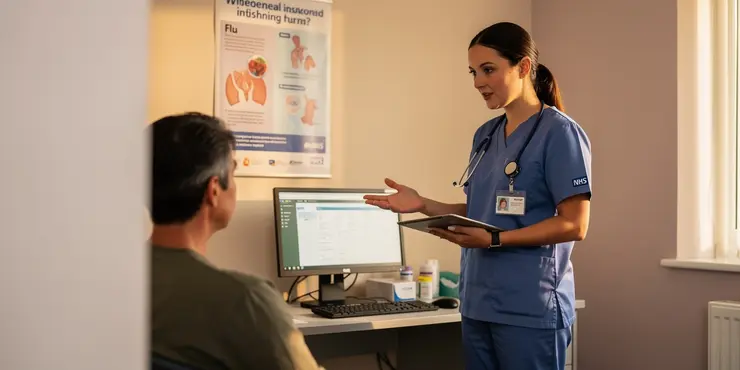
Symptoms of flu (influenza)
Relevance: 21%
-
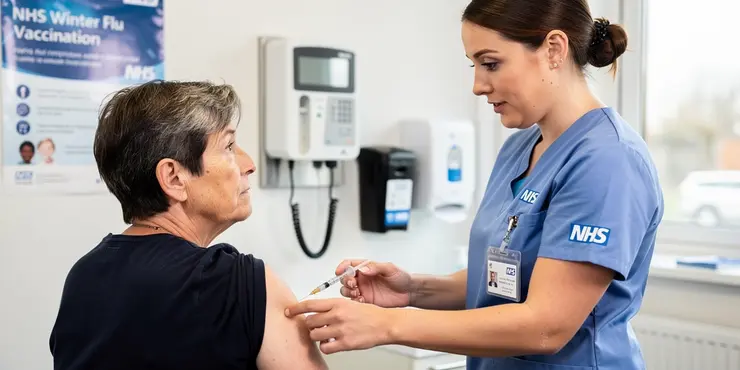
Are there any side effects of the winter flu jab?
Relevance: 21%
-
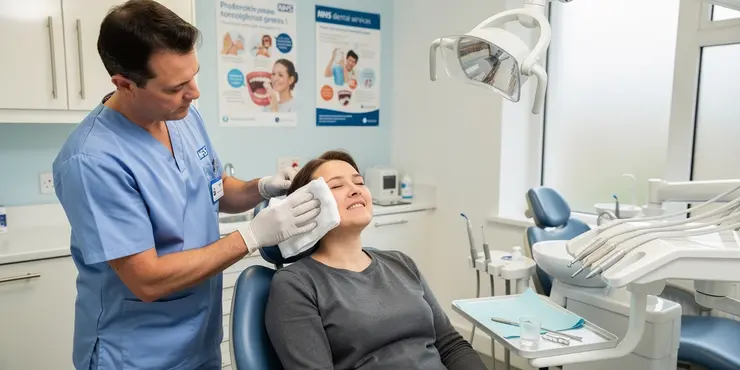
NHS 24 | Self-help tips for dental pain
Relevance: 21%
-
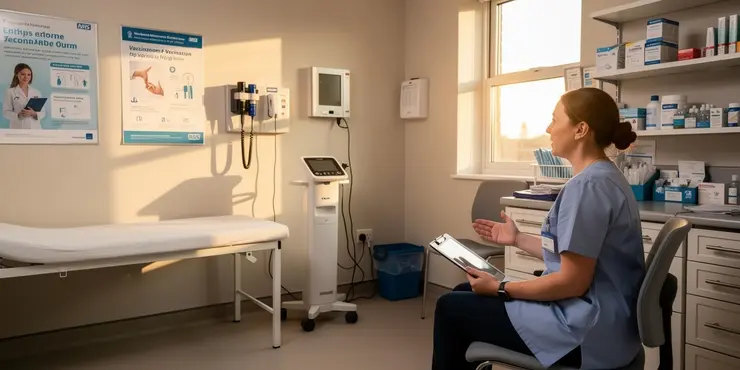
Latest Advice on Managing Respiratory Illnesses During Flu Season
Relevance: 21%
What are Cold Sores?
Cold sores, also known as fever blisters, are small, painful blisters that typically appear on or around the lips, but can also develop on other parts of the face. They are caused by the herpes simplex virus (HSV), primarily HSV type 1. Once you are infected, the virus remains in your body for life, typically under the skin inside your mouth and lips, or, in some cases, in your nostrils and on your fingers. From time to time, the virus can be reactivated, resulting in the appearance of cold sores.
Causes and Triggers
The primary cause of cold sores is the herpes simplex virus. The initial infection can occur during childhood or early adulthood, and is often asymptomatic. However, once the virus enters the body, it lies dormant in the nerve cells. Various triggers can cause the dormant virus to reactivate, leading to the formation of cold sores. Common triggers include stress, fatigue, exposure to sunlight or wind, hormonal changes such as those associated with menstruation, and a weakened immune system due to illness or other factors.
Symptoms and Progression
Cold sores typically begin with a tingling, itching, or burning sensation around the lips or affected area, followed by the emergence of small blisters filled with fluid. These blisters can cause discomfort, and they often rupture after a few days, releasing the fluid. Once the blisters break, a crust forms over the sore, eventually leading to healing within two to four weeks without leaving a scar. While cold sores are most common on the lips, they may also appear inside the mouth, on the nose, cheeks, or fingers. During an outbreak, the virus can be easily transmitted to others through direct contact.
Treatment and Prevention
Although there is no cure for cold sores, several treatments can help alleviate symptoms and accelerate healing. Over-the-counter antiviral creams like aciclovir can be effective if applied at the first sign of an outbreak. In some cases, doctors may prescribe antiviral medication to manage severe or frequent episodes. To prevent outbreaks, individuals should avoid known triggers, use lip balm with SPF to protect against ultraviolet light, and maintain a healthy lifestyle to strengthen their immune system. Additionally, avoiding close contact with affected areas and being mindful of personal hygiene can help reduce the risk of spreading the virus to others.
Living with Cold Sores
Most people with the herpes simplex virus experience periodic cold sores, but they can live normal lives by managing outbreaks and minimizing their impact. Educating oneself about the condition and its triggers, coupled with early intervention, can help reduce both the frequency and severity of cold sore episodes, allowing for a more comfortable and less disruptive experience.
What are Cold Sores?
Cold sores, also called fever blisters, are small, sore blisters. They usually show up on or around your lips. Sometimes, they can also appear on your face. Cold sores are caused by a virus called herpes simplex virus (HSV), mostly HSV type 1. Once you get this virus, it stays in your body forever. It usually hides under the skin inside your mouth and lips. Sometimes, it can be in your nose or on your fingers. Every now and then, the virus wakes up and causes cold sores.
Causes and Triggers
The herpes simplex virus is what causes cold sores. You might get this virus when you are a child or a young adult, and you might not even notice it. After you catch the virus, it sleeps in your nerve cells. There are certain things that can wake the virus up and make cold sores appear. These things include feeling stressed, being really tired, spending too much time in the sun or wind, changes in hormones (like during your period), or if your body is fighting another illness.
Symptoms and Progression
Before a cold sore shows up, you might feel a tingle, itch, or burn on your lip or the area where it will appear. Then, small blisters filled with fluid will show up. These blisters might feel uncomfortable and usually break open after a few days. When they break, a crust forms over the sore and heals in 2 to 4 weeks without leaving a scar. Cold sores mostly appear on lips, but they can also be inside your mouth, on your nose, cheeks, or fingers. When you have a cold sore, it's easy to pass the virus to someone else by touching.
Treatment and Prevention
There is no way to cure cold sores, but some treatments can help them heal faster and feel better. You can use special creams from the store, like aciclovir, as soon as you feel a cold sore starting. In some cases, a doctor can give you medicine to help if you get cold sores a lot. To stop cold sores from coming back, avoid the things that trigger them. Use lip balm with SPF to protect your lips from the sun. Try to stay healthy and strong. To keep from giving the virus to others, don't touch or kiss anyone when you have a cold sore, and keep your hands clean.
Living with Cold Sores
Many people with the herpes simplex virus get cold sores sometimes, but they can still have normal lives. Learn about what causes your cold sores and what might trigger them. Acting early when you feel one coming can help make them less painful and heal faster. This way, cold sores can be less of a problem for you.
Frequently Asked Questions
What are cold sores?
Cold sores are small, painful blisters that usually appear on or around the lips and are caused by the herpes simplex virus.
What causes cold sores?
Cold sores are caused by the herpes simplex virus (HSV), typically HSV-1, though HSV-2 can also cause them.
How are cold sores transmitted?
Cold sores are transmitted through direct contact with an infected person's skin or saliva, such as through kissing or sharing personal items like razors or towels.
What are the symptoms of a cold sore?
Symptoms of a cold sore include tingling, itching, or burning sensations, followed by the appearance of small, fluid-filled blisters on or near the lips.
Are cold sores contagious?
Yes, cold sores are highly contagious, especially when the blisters are open and oozing.
How long do cold sores last?
Cold sores typically last between 7 to 10 days, but healing times can vary.
Is there a cure for cold sores?
There is no cure for cold sores, but antiviral medications can help reduce the severity and frequency of outbreaks.
How can I prevent cold sores?
Prevent cold sores by avoiding close contact with infected individuals, not sharing personal items, and managing stress and triggers.
What triggers a cold sore outbreak?
Triggers for cold sore outbreaks can include stress, illness, fatigue, sun exposure, and hormonal changes.
Can cold sores spread to other parts of the body?
Yes, HSV can spread to other areas of the body, including the eyes or genitals, through direct contact.
What is the difference between cold sores and canker sores?
Cold sores are caused by HSV and appear on the lips or face, while canker sores are non-contagious ulcers that occur inside the mouth.
Can you get cold sores without being exposed to someone with them?
Most people who get cold sores were exposed to the herpes simplex virus as children or young adults, often unknowingly.
Are certain people more susceptible to cold sores?
Yes, individuals with weakened immune systems may be more susceptible to cold sore outbreaks.
Can cold sores lead to complications?
Complications are rare but can include spreading the virus to the eyes (herpes keratitis) or secondary bacterial infections of the sores.
What over-the-counter treatments are available for cold sores?
Over-the-counter treatments include creams and gels with docosanol or benzyl alcohol, which can help reduce symptoms and duration.
Can lifestyle changes help manage cold sores?
Yes, reducing stress, using sunblock on the lips, and maintaining overall health can help manage outbreaks.
Can children get cold sores?
Yes, children can get cold sores as the herpes simplex virus is often spread through non-sexual contact among family members.
Should I see a doctor for cold sores?
See a doctor if the sores are severe, persistent, or you have frequent outbreaks to discuss prescription treatment options.
Can toothpaste help cure cold sores?
There is no scientific evidence that toothpaste can cure cold sores; antiviral medications are the most effective treatment.
Are there home remedies for cold sores?
Some people find relief using cold compresses, aloe vera, or lip balms with lemon balm or lysine, but effectiveness varies.
What Are Cold Sores?
Cold sores are little blisters that can form on your lips or around your mouth. They can feel itchy or sore.
Here are some tips to help understand and deal with them:
- They usually go away by themselves after a few days.
- You can put a cold cloth on them to feel better.
- Make sure not to touch them too much, so they don't spread.
- If you have a lot of blisters, tell a grown-up or see a doctor.
Pictures or videos can also help you learn more about cold sores. Ask a grown-up to help find them.
Cold sores are tiny, sore bumps. They show up on or around your lips. A virus called herpes simplex makes them happen.
What makes cold sores appear?
Cold sores are little blisters you get on your lips or around your mouth. They happen because of a virus called herpes. There are two types of this virus. The one called HSV-1 usually causes cold sores. The other type, called HSV-2, can also cause them sometimes.
How do cold sores spread?
Cold sores can spread from one person to another.
Here’s how:
- Kissing someone who has a cold sore.
- Sharing cups, forks, or spoons with someone who has a cold sore.
- Touching a cold sore and then touching your face.
To stop cold sores from spreading:
- Do not kiss when you or the other person has a cold sore.
- Use your own cup and spoon.
- Wash hands often, especially if you touch a cold sore.
Helpful tools:
- Picture cards showing ways cold sores spread.
- An app to remind you to wash your hands.
You can get cold sores by touching another person who has them. This might happen if you kiss them or use things like their razor or towel.
What are the signs of a cold sore?
A cold sore is a small blister. Here are some signs:
- Your lip feels tingly or itchy.
- You see a small bump on your lip.
- The bump might hurt a bit.
- The bump can turn into a blister.
- The blister may break and form a scab.
If you need help, ask an adult or use pictures to understand better.
Signs that you might have a cold sore are: your lips feel tingly, itchy, or like they are burning. Then, you might see little blisters with liquid inside them on or near your lips.
Can you catch cold sores from someone?
Yes, cold sores spread easily. They spread a lot when the blister is open and leaking.
How long do cold sores stay?
Cold sores are small blisters you get on your lips or around your mouth. They are caused by a virus. Cold sores usually last about one to two weeks.
Here are some things you can do to feel better:
- Keep the sore clean and dry.
- Try not to touch it, so it doesn't spread.
- Use a lip balm to help your lips feel better.
- Ask a grown-up for medicine if it hurts a lot.
If you have questions, ask a parent or a doctor for help.
Cold sores usually go away in 7 to 10 days. But sometimes they take a bit longer to heal.
Can cold sores be fixed?
You cannot make cold sores go away forever, but medicine can help make them hurt less and happen less often.
How can I stop cold sores?
Cold sores are little sores that sometimes come on your lips or mouth. Here is how you can stop them:
- Try not to touch the sores. This can stop them from spreading.
- Wash your hands often with soap and water.
- Use sunscreen on your lips when you go outside to stop the sun from hurting your skin.
- Eat healthy foods to help your body stay strong.
- Get plenty of rest to help your body stay well.
- If you feel a tingle on your lip, tell an adult. They can help you get medicine quickly.
Sometimes, cold sores can be passed to other people:
- Don’t share towels, razors, or lip balm with others.
- Try not to kiss anyone when you have a cold sore.
Tools that can help you:
- Use a mirror to see the sore clearly.
- Use a reminder to practice washing your hands.
If you need help, ask a doctor or a grown-up. They will help you feel better.
To stop cold sores, try to stay away from people who have them. Do not share things like cups or towels. Try to stay calm and avoid things that upset you because they can cause cold sores.
What causes a cold sore to happen?
Cold sores can happen because of different things. These things include feeling stressed, being sick, feeling very tired, spending too much time in the sun, or changes in your hormones.
Can cold sores move to other parts of the body?
Yes, cold sores can move to other places on your body.
Here’s how you can stop them from moving:
- Do not touch your cold sore.
- If you touch it, wash your hands right away.
- Keep your face and hands clean.
If you find it hard to read, try these tips:
- Ask someone to read it with you.
- Use a ruler or finger to follow the words.
- Break down the text into smaller parts.
Yes, the HSV virus can move to other parts of the body. It can go to places like the eyes or private parts if they touch it.
How are cold sores and canker sores different?
Cold sores and canker sores are not the same. Here is how they are different:
- Cold Sores: These are small blisters that usually appear on the lips or around the mouth. They are caused by a virus.
- Canker Sores: These are small, painful spots inside your mouth. They are not caused by a virus.
Here are some tips to help you:
- Ask an adult to explain words you don’t know.
- Use pictures to understand better.
- Talk to a doctor if you have more questions.
Cold sores are little sores you get on your lips or face. They are caused by a virus called HSV. Canker sores are different. They are not because of a virus and you get them inside your mouth. Canker sores can’t spread to other people.
Can you get cold sores if you don't meet someone with them?
Cold sores are small blisters on your lips. They hurt and are caused by a virus.
Usually, you get cold sores from kissing or sharing drinks with someone who has them.
But the virus can sometimes be in your body and you don’t know it.
If you get cold sores, try:
- Asking a grown-up or doctor for help.
- Using lip balm to feel better.
- Not touching the sore, so it doesn’t spread.
Remember, cold sores go away after a while.
Many people get cold sores because they came into contact with a virus called herpes simplex when they were kids or teens. Most of the time, they don’t even know it happened.
Here’s a helpful tip: Sometimes it helps to learn about viruses with pictures or videos. You can ask an adult to help find these online.
Do some people get cold sores more easily?
Yes, people with a weak body defense system can get cold sores more easily.
Do cold sores cause other problems?
Sometimes, problems can happen, but this is not often. The virus can spread to the eyes, which is called herpes keratitis. Sores can also get other infections from germs.
What treatments can I buy for cold sores?
If you have a cold sore, you can buy some medicines at the store without needing a prescription.
Here are some things that can help:
- Creams: These are put on the cold sore to make it feel better.
- Patches: These cover the cold sore and help it heal.
It is a good idea to ask a pharmacist if you need help choosing one.
You can buy treatments at the store. These include creams and gels with ingredients called docosanol or benzyl alcohol. They can help make you feel better and get better quicker.
Can changing how you live help with cold sores?
Cold sores are little blisters that can hurt. You get them on your lips or around your mouth. Making some changes in your daily life might help with cold sores.
Here are some tips you can try:
- Get enough sleep to help your body stay strong.
- Eat healthy food like fruits and vegetables.
- Try to relax and not feel too stressed.
- Put on sunscreen to protect your lips from the sun.
These changes might make cold sores happen less often and heal faster. If you need more help, talk to a doctor or a nurse.
Yes, you can help stop outbreaks by:
- Keeping stress low
- Putting sunblock on your lips
- Staying healthy
Try using reminders or apps to help you feel less stressed. Remember to put sunblock on before going outside. Eating good food and sleeping well can help keep you healthy.
Can kids get cold sores?
Yes, kids can get cold sores. Cold sores are small blisters that can appear on the lips or around the mouth. They can be a bit itchy or sore.
If you think your child has a cold sore, you can help by:
- Giving them a cold cloth to put on the sore. This can make it feel better.
- Asking a grown-up, like a parent or a doctor, to help with medicine if needed.
- Teaching them not to touch the sore and to wash their hands often. This stops germs from spreading.
Yes, children can get cold sores. The virus that causes them can spread by touching or sharing things with family members.
Should I see a doctor for cold sores?
Cold sores are little blisters that can hurt. They show up on your lips or around your mouth. If you have a cold sore for the first time, it is a good idea to see a doctor.
Here’s when to see a doctor:
- If the cold sore is very big or hurts a lot.
- If the cold sore does not go away after 2 weeks.
- If you get cold sores often.
- If you have a weak immune system.
Things you can do to feel better:
- Use a cold sore cream from the pharmacy.
- Put ice on the cold sore to feel less pain.
- Try not to touch or pick at the sore.
Helpful tools:
- Talk to a doctor or nurse if you are not sure what to do. They can help you.
- There are apps and websites that can help you learn more about taking care of cold sores.
Go to a doctor if your sores are bad, don't go away, or keep coming back. The doctor can talk to you about medicine that can help.
Does toothpaste help with cold sores?
Toothpaste cannot cure cold sores. Medicine from a doctor works best.
What can I do at home to help cold sores?
Some people feel better by using a cold pack, aloe vera, or lip balms with lemon or lysine, but it might not work for everyone.
Useful Links
This website offers general information and is not a substitute for professional advice.
Always seek guidance from qualified professionals.
If you have any medical concerns or need urgent help, contact a healthcare professional or emergency services immediately.
Some of this content was generated with AI assistance. We’ve done our best to keep it accurate, helpful, and human-friendly.
- Ergsy carfully checks the information in the videos we provide here.
- Videos shown by Youtube after a video has completed, have NOT been reviewed by ERGSY.
- To view, click the arrow in centre of video.
- Most of the videos you find here will have subtitles and/or closed captions available.
- You may need to turn these on, and choose your preferred language.
- Go to the video you'd like to watch.
- If closed captions (CC) are available, settings will be visible on the bottom right of the video player.
- To turn on Captions, click settings .
- To turn off Captions, click settings again.
More Items From Ergsy search
-

What are Cold Sores?
Relevance: 100%
-

Is there a cure for cold sores?
Relevance: 100%
-

Are cold sores contagious?
Relevance: 99%
-

What causes cold sores?
Relevance: 96%
-

What are the symptoms of a cold sore?
Relevance: 96%
-

How are cold sores transmitted?
Relevance: 95%
-

How long do cold sores last?
Relevance: 92%
-

What triggers a cold sore outbreak?
Relevance: 91%
-

How can I prevent cold sores?
Relevance: 90%
-

Honey 'as good as antiviral creams' for cold sores | NHS Behind the Headlines
Relevance: 79%
-

What is the best way to treat a sore throat from a cold?
Relevance: 77%
-

Causes of a sore throat
Relevance: 66%
-

Treating a sore throat
Relevance: 65%
-

What are the common symptoms of a cold?
Relevance: 59%
-

How to treat a cold | NHS
Relevance: 58%
-

Sore throat: what should I do?
Relevance: 58%
-

How to Treat a Common Cold
Relevance: 57%
-

Is there a way to cure a cold quickly?
Relevance: 54%
-

Is it safe to exercise with a cold?
Relevance: 54%
-

Should I see a doctor for a cold?
Relevance: 53%
-

How can I treat a cold at home?
Relevance: 53%
-

Can I take antibiotics for a cold?
Relevance: 52%
-

Can cold weather cause a cold?
Relevance: 51%
-

How long does a common cold typically last?
Relevance: 50%
-

Can I use a humidifier to help with my cold symptoms?
Relevance: 48%
-

What should you do if you have a cough or cold?
Relevance: 45%
-

Plantar Fascia Cold Therapy
Relevance: 45%
-

Is Vitamin C effective against colds?
Relevance: 43%
-

Is it safe to take cold showers during a heatwave?
Relevance: 42%
-

How do I treat my child's cold? (9 - 30 months) | NHS
Relevance: 41%
-

Is it okay to use ice packs or cold showers to cool down?
Relevance: 41%
-
Can orange juice help prevent colds?
Relevance: 41%
-

Can children take the same cold medications as adults?
Relevance: 39%
-

How can I prevent spreading my cold to others?
Relevance: 38%
-

Can I receive the Warm Home Discount and Cold Weather Payment?
Relevance: 38%
-

Dealing with Common Childhood Illnesses
Relevance: 32%
-

Symptoms of flu (influenza)
Relevance: 21%
-

Are there any side effects of the winter flu jab?
Relevance: 21%
-

NHS 24 | Self-help tips for dental pain
Relevance: 21%
-

Latest Advice on Managing Respiratory Illnesses During Flu Season
Relevance: 21%


